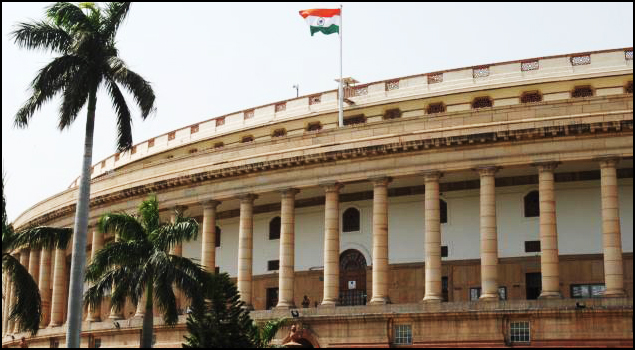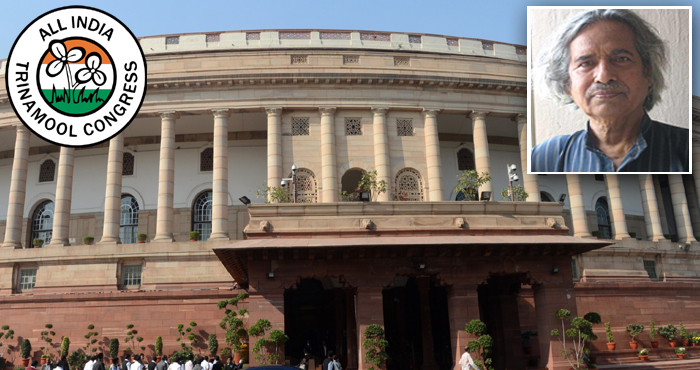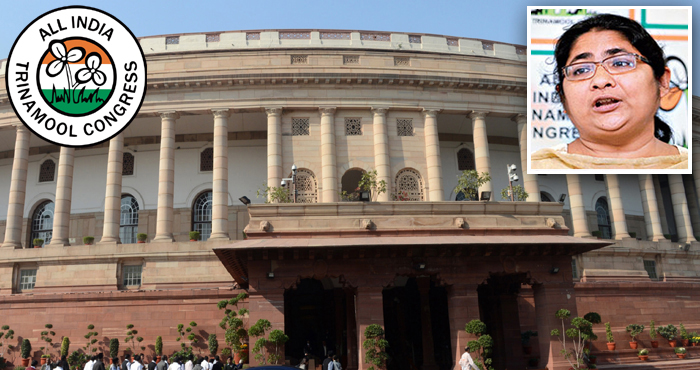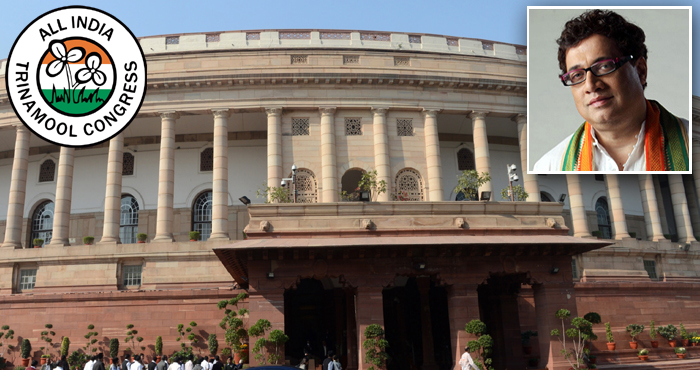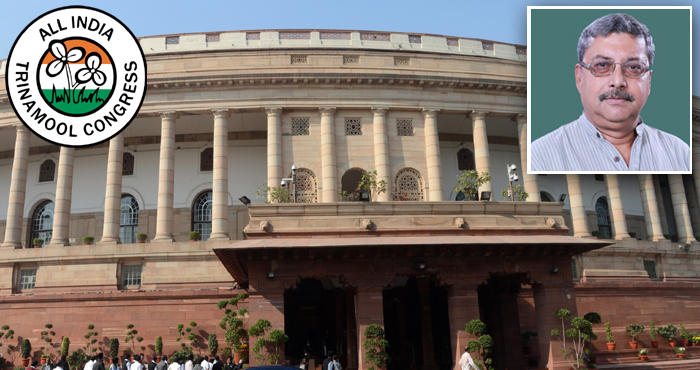Trinamool Congress raised various issues concerning the nation as well as made fervent demands regarding West Bengal in both the Houses of the Parliament during the week.
Party MPs spoke on various issues during Question Hour, Zero Hour and legislative business (including discussions on Bills, Short Duration Discussions and Calling Attentions Motions).
Here are the links to the speeches, interventions, questions made by Trinamool MPs in the course of the week.
Question Hour
- Derek O’Brien’s supplementary question in Rajya Sabha on MGNREGA | goo.gl/8wbkwe
- Derek O’Brien’s supplementary question in Rajya Sabha on electrification | goo.gl/wAhjij
- Jogen Chowdhury’s supplementary question in Rajya Sabha on underground wiring | goo.gl/b19YFg
- Derek O’Brien’s supplementary question in Rajya Sabha on National Rural Drinking Water Programme | goo.gl/FQLDfk
- Satabdi Roy’s question in Lok Sabha on the violation of electromagnetic field (EMF) norms for mobile phone towers | goo.gl/jyhSrP
- Kalyan Banerjee’s question in Lok Sabha on re-employment of retired bureaucrats | goo.gl/JYNmTW
- Choudhury Mohan Jatua’s question in Lok Sabha on construction of a sea port in Gangasagar | goo.gl/cZWcSI
Zero Hour
- Derek O’Brien in Rajya Sabha on the utilisation and disbursement of cess collected under various heads | goo.gl/SvDtvz
- Dasarath Tirkey in Lok Sabha on the occasion of Adivasi Diwas | goo.gl/7m3822
- Saugata Roy in Lok Sabha on the situation in Kashmir | goo.gl/kLYBMX
- Aparupa Poddar in Lok Sabha on increasing grant amount for Indira Awas Yojana | goo.gl/eNKDPb
- Sudip Bandyopadhyay in Lok Sabha on problems in the distribution of minority scholarships | goo.gl/wDiXo8
- Arpita Ghosh in Lok Sabha on the demand for dredging Atreyi River | goo.gl/sS02I9
- Sudip Bandyopadhyay in Lok Sabha on the Centre owing West Bengal Rs 1,700 crore in MGNREGS wage dues | http://goo.gl/P45fVH
- Sukhendu Sekhar Roy in Rajya Sabha demanding discussion on the Kashmir issue | goo.gl/LRzUgQ
Discussions
- Sukhendu Sekhar Roy in Rajya Sabha sought clarification on the recent militant attack in Kokrajhar | goo.gl/vgjcAy
- Ahamed Hassan Imran’s intervention in Rajya Sabah on recent attack in Kokrajhar | goo.gl/2alxTo
- Derek O’Brien in Rajya Sabha on RSS involvement in education | goo.gl/yn41ZY
- Jogen Chowdhury in Rajya Sabha on National Education Policy | goo.gl/MwyTQS
- Derek O’Brien in Rajya Sabha on Government resolution on Railways | goo.gl/2srSKm
- Derek O’Brien in Rajya Sabha on the situation in Kashmir | goo.gl/h1LIOb
- Saugata Roy in Lok Sabha on atrocities committed on Dalits in the country | goo.gl/VW0es4
Calling Attention Motions
- Sukhendu Sekhar Roy in Rajya Sabha during a Calling Attention Motion on the impasse regarding appointment of judges | goo.gl/Gdbtbd
- Sudip Bandyopadhyay in Lok Sabha during Calling Attention Motion on encephalitis | goo.gl/BO97q6
Legislations
- Ahamed Hassan Imran in Rajya Sabha on The Mental Health Care Bill, 2013 | goo.gl/kPGgMe
- Vivek Gupta in Rajya Sabha on The Enforcement of Security Interest and Recovery of Debts Laws and Miscellaneous Provisions (Amendment) Bill, 2016 | goo.gl/25TI4B
- Dola Sen in Rajya Sabha on The Maternity Benefit (Amendment) Bill, 2016 | goo.gl/V3Ihh6
- Derek O’Brien in Rajya Sabha sought clarification on The Maternity Benefit (Amendment) Bill, 2016 | goo.gl/hMJjat
- Kalyan Banerjee in Lok Sabha on The Constitution (One Hundred and Twenty-Second Amendment) Bill, 2014 | goo.gl/eOINJW
- Pratima Mandal in Lok Sabha on The Employee’s Compensation Amendment Bill, 2016 | goo.gl/w6QaX1
- Aparupa Poddar in Lok Sabha on The Central Agricultural University (Amendment) Bill, 2016 | goo.gl/CT587U
- Mumtaz Sanghamita in Lok Sabha on The Employee’s Compensation (Amendment) Bill, 2016 | goo.gl/P4VQne
- Sugata Bose in Lok Sabha on The Taxation Laws (Amendment) Bill, 2016 | goo.gl/Z4rTmf
- Aparupa Poddar in Lok Sabha on The Factories (Amendment) Bill, 2016 | goo.gl/BquFfs
- Kalyan Banerjee in Lok Sabha on The Factories (Amendment) Bill, 2016 | goo.gl/m7Vdml
- Saugata Roy in Lok Sabha on The Factories (Amendment) Bill, 2016 | goo.gl/ZJiTQj
- Sudip Bandyopadhyay in Lok Sabha makes intervention during the introduction of The Citizenship (Amendment) Bill, 2016 | goo.gl/SdaTSw

